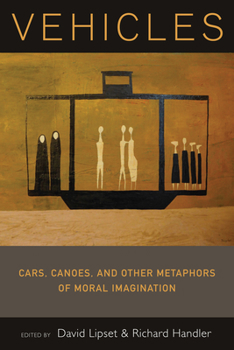Vehicles: Cars, Canoes, and Other Metaphors of Moral Imagination
Select Format
Select Condition 
Book Overview
Metaphor, as an act of human fancy, combines ideas in improbable ways to sharpen meanings of life and experience. Theoretically, this arises from an association between a sign-for example, a cattle car-and its referent, the Holocaust. These "sign-vehicles" serve as modes of semiotic transportation through conceptual space. Likewise, on-the-ground vehicles can be rich metaphors for the moral imagination. Following on this insight, Vehicles presents a collection of ethnographic essays on the metaphoric significance of vehicles in different cultures. Analyses include canoes in Papua New Guinea, pedestrians and airplanes in North America, lowriders among Mexican-Americans, and cars in contemporary China, Japan, and Eastern Europe, as well as among African-Americans in the South. Vehicles not only "carry people around," but also "carry" how they are understood in relation to the dynamics of culture, politics and history.





